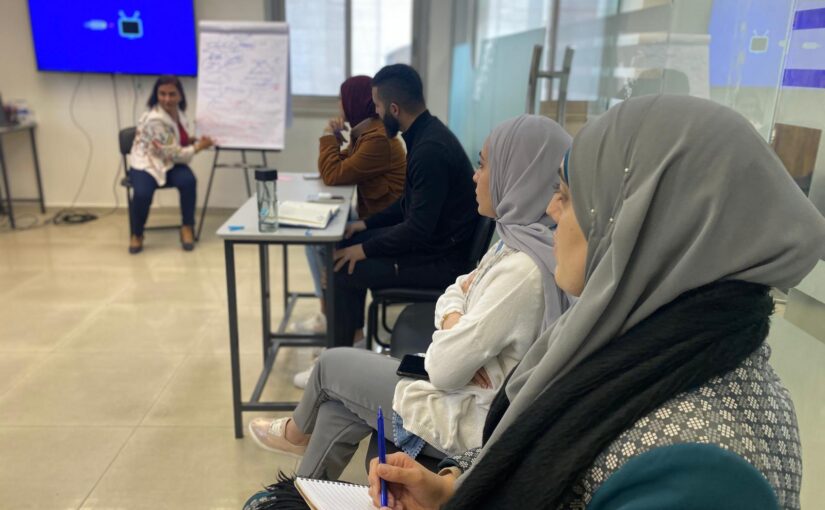Within the framework of “Shabana Qadha” project, PalVision organization is implementing a series of trainings concerning gender-based violence during November and December. These trainings include non-harm and risk mitigation, protection from exploitation and sexual abuse, appropriate security and ethical interventions, and mechanisms of cases considering corona crisis.
The project targets the staff, volunteers and trainees working in the coordinating committee of the Children Protection in Jerusalem. The committee was formed as a result to the constant need to support and protect children from any form of violence in Jerusalem. It is worth noting that the Coordinating Committee consists of institutions working in the field of child protection in the targeted areas of the project, which are Jabal Al-Mukaber, Silwan, Shuafat Camp, the Old City and Al-Issawiya. The coordinating committee coordinates among each other to exchange the experiences in this field to provide services and optimal response to the needs of children in the targeted areas and provide a quality service aimed at protecting, promoting and supporting marginalized children in Jerusalem. 100 people were targeted within five groups, in which they work in the targeted pre-mentioned areas above.
PalVision will complete the training by December, in all the targeted governorates of the West Bank, targeting twelve groups of protection committee networks, with nearly 250 people in several areas: Tulkarm, Jenin, Nablus, Salfit, Ramallah, Bethlehem, Tubas, Jericho, Qalqilya, Yatta, Hebron, and Jerusalem.
An intern of PalVision and a participant in the training, Aya Al-Khatib, said, “I have not participated in such an interesting training such in the field of Gender-Based Violence in a long time. This is due to the interactive explanation and presentation of the provided information. Also, the training was far from any fanaticism or negative stereotypes. Moreover, the presented topics affect tackled out daily life issues.”
The trainer, Amina Awadat said that the participants expressed their thoughts about “the importance of tackling this topic under these tough circumstances, and they were very consistent as a team despite the wide differences in their working field or specialties. This difference was a major reason from my point of view to promote the concept of Gender Based Violence more practically rather than theoretically. Also, many different issues of violence from different groups of society were discussed and analyzed. Also, the training created a free and safe space for everyone to share their ideas and experiences.
During the training, experiences of people infected with the Coronavirus, and their families, were heard and discussed. In addition to sharing experiences of colleagues from the most vulnerable groups of women, girls, people with disabilities, or mothers who had lived in quarantine with their families. As well as young men and women who were quarantined for a long time and they never went through such experience. Moreover, we heard stories of employees that stayed committed to their work and how they went through a personal crisis of their sense of commitment to their work alongside to aligning all of their daily tough experience with their family obligations. Also, the training included stories from people who have suffered from panic attacks due to lack of knowledge about the virus and other issues.
Awadat added, “Everyone agreed on the importance of knowledge and the appropriate tools to face such GBV cases in the future to help reduce the phenomena of violence in the Palestinian community. Therefore, comprehensive understanding of gender issues, gender-based violence, and the definition of safety mechanisms used to provide psychological and social support services and survivors of violence is important”. She also added that “we also reviewed the directory of Jerusalem institutions that provide services in this field and focused on the need to understand and respect the roles within the institution. Moreover, we discussed the importance of coordination between institutions that facilitate access to safe services under these circumstances in order to protect the survivors and protect the service providers under these circumstances”.
Launch of “Nahj” Project Trainings in Jerusalem!
The Palestinian Vision Organization, in partnership with Al-Quds Station Foundation, is launching a series of

